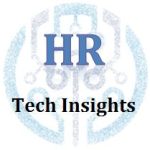Journalist Kari Paul wrote an article in Vice about how creepy it was when Facebook’s analytics decided she was depressed and started feeding her ads on depression. Creepy yes, but if you’re interested in analytics you must have a little guilty curiosity as to whether similar analytics could be used to monitor employee mood.
 How Facebook analyzes your mood isn’t much of a mystery. It watches what you post, what you read, what you like — that’s a ton of data that provides hints about mood. Similarly, since many of an employees’ actions are being automatically captured it means organizations could potentially keep an unblinking eye on its employees’ stress, anxiety, depression, enthusiasm and so on.
How Facebook analyzes your mood isn’t much of a mystery. It watches what you post, what you read, what you like — that’s a ton of data that provides hints about mood. Similarly, since many of an employees’ actions are being automatically captured it means organizations could potentially keep an unblinking eye on its employees’ stress, anxiety, depression, enthusiasm and so on.
Being monitored, even discretely monitored, is invasive but it could also be the equivalent having a wise friend at your shoulder. Your wise (but nosey) friend may say, “Don’t try to finish that spreadsheet now, you’re tired and you’re bound to make mistakes. Go home. Relax. It can wait.”
You can see an analogy in self-driving cars. The great advantage automated cars have over human drivers is that they can look in many different directions at once. Similarly, a Facebook-like system that can individually watch each employee, minute-by-minute may have a better “view of the road” than a manager who catches only glimpse of an employee on any given day.
Before you unleash your analytics team on this kind of monitoring, recognize that a system sophisticated enough to provide constant feedback on employee well-being will probably come from vendors rather than in-house teams; perhaps even Facebook itself will one day offer this service to organizations.
Software like this is already available. Vibe gives companies the ability to monitor employee morale. Read “If You Use Slack, You Can Monitor Company Morale.”
Still too creepy for you? Perhaps the real win will come not from these systems reporting on employees, but directly giving private advice to each employee on everything from their emotional well-being to tips on writing better emails. That’s a system that would be worth having.
What’s interesting?
- Our relationship with Facebook and similar systems is shifting from it being a tool we use to a sort of intelligence we have a relationship with. Your friends may understand you are just joking when you share some dark humor, but before you post you’ll soon have to ask, “What will Facebook think?”
What’s really important?
- In most cases, it won’t make sense to develop monitoring analytics yourself; vendors will use tools provided by Facebook or Google that will be better than anything you can do in-house.
- It’s a good idea to start articulating the principles that will guide how much you monitor your employees. Getting people to think about these ethical issues early on will help prevent missteps as this potentially creepy technology makes its way into our organizations.
Special thanks to our community of practice for these insights. The community is a group of leading organizations that meets monthly to discuss analytics and evidence-based decision making in the real world. If you’re interested in moving down the path towards a more agile approach to people analytics, then email me at dcreelman@creelmanresearch.com or connect to me on LinkedIn.
